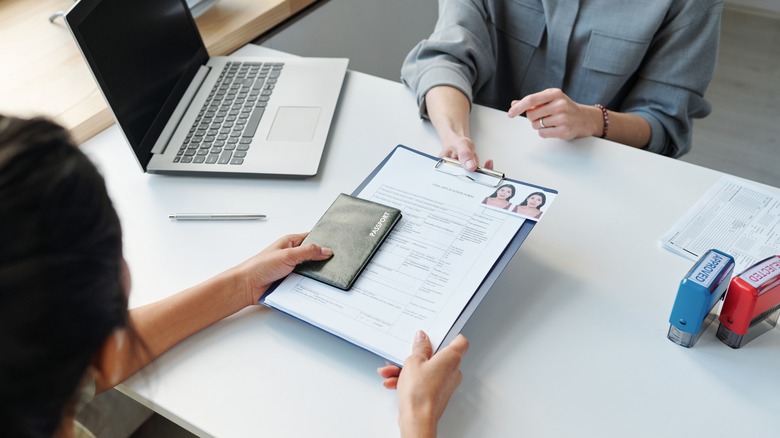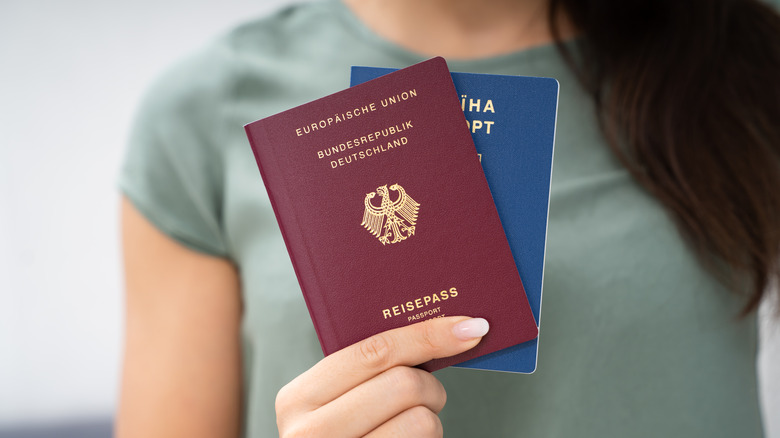Travel Guides International Passports
Lexi Kassler
Whether you were born with the wonderful privilege of dual citizenship or you acquired it later in life, you are probably aware of the many benefits you can reap as a citizen of two nations. Though these perks can vary widely, dual citizens can enjoy advantages in terms of travel, residency abroad, and even some financial benefits. However, there is one major perk that dual citizens may not be taking full advantage of, which is the ability to acquire a second passport.
A second passport can offer dual citizens a range of benefits. For starters, dual citizens can easily travel between their two countries without having to obtain visas or other travel documents. This can be especially useful if one is a citizen of a country with strict visa requirements or is visiting a third country with strict visa or entry requirements for one nation or group of nations and more lenient policies for others. Dual citizens may also be able to relocate quickly if there is political or social unrest or an environmental catastrophe occurs in their home country. Additionally, dual citizens who acquire a second passport may also enjoy enhanced financial privacy and be able to avoid paying taxes in a high-tax country. Though the ethics of these financial perks are questionable, it’s undeniably a benefit that many take advantage of regardless. And the perks don’t stop there!
Take advantage of powerful passport privileges

Prostock-studio/Shutterstock
As passports go, there is a spectrum of privileges that each nation can provide its citizens based on agreements in place with other countries. A second passport can be especially useful for citizens with “weak” passport privileges and who are dual citizens of a country with “powerful” passport privileges. “Powerful” passports such as Japan, South Korea, Germany, Italy, and the United States allow citizens access to 180-plus destinations worldwide without having to apply for visas for many of them.
If you must apply for a visa, in some cases your passport may make you eligible to apply electronically through an online visa process as opposed to in person. Use the Passport Index to compare different passports and see what your country’s mobility score is! For example, you would find if you compared the United States and Italian passports, a dual citizen of these two countries would be able to travel to Bolivia, Vietnam, or several island nations (such as Samoa and Tuvalu) visa-free as an Italian citizen.
How to acquire a second passport in most countries

AnnaStills/Shutterstock
To get a second passport from another country there are several things you will need first. The most obvious of these is citizenship in another country. There are many avenues by which you can acquire secondary citizenship by descent, marriage, or naturalization for example. However, be sure you do not have to relinquish one citizenship for another. There are several countries around the world that require you to renounce your citizenship in order to become a naturalized citizen of that country, like Japan and Croatia for example, or where you may automatically lose citizenship if you become a citizen of another country. So be sure to do lots of research before beginning the journey to acquiring dual citizenship.
Some application processes can be a bit more complicated than others but once you do have your secondary citizenship, the process can be fairly straightforward. It depends on your individual situation but in most cases you will need to apply for a passport in person, though it can sometimes be done online. However, most often will need to be done at a consulate or embassy in your home country or in the country itself if you decide to relocate there. If you acquired secondary citizenship later in life, you will likely need all of the documents involved in your citizenship application process. If you were a dual citizen at birth, you may simply need a birth certificate and a government-issued ID.

